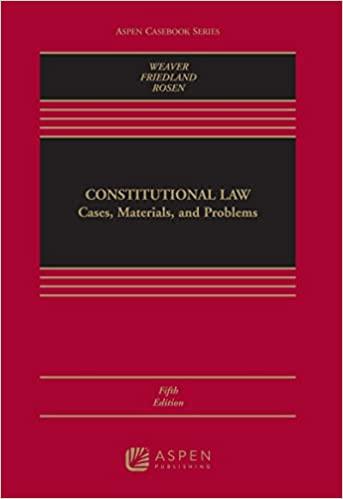Question
Below is a summary of the facts of the case Aintree University Hospitals NHS Foundation Trust v James [2014] 1 All ER 573. In May
Below is a summary of the facts of the case Aintree University Hospitals NHS Foundation Trust v James [2014] 1 All ER 573. In May 2012, at the age of 68 years old, Mr James was admitted to hospital due to problems with a device fitted in 2001 in his colon (lower gut). It had been put there to help him get over cancer of the colon. Due to complications with Mr James' treatment, he acquired an infection which led to pulmonary disease, kidney injury and low blood pressure. He was put on a ventilator in the critical care unit. Over the next few months he had many severe medical problems, including infections, a cardiac arrest and a stroke. He remained there until December 2012, when the NHS Trust sought a declaration that, if Mr James' condition were to suddenly get worse, they would be legally allowed not to treat him. The doctors and nurses put forward evidence that Mr James was very weak and would be very unlikely ever to leave the hospital. This evidence was confirmed by an independent medical expert. Further, the NHS Trust sought at that December 2012 hearing to have the court acknowledge that Mr James had suffered such issues with his nervous system that he no longer had the capacity to make any decisions about his own health. This was agreed by the parties. The court would have to decide for him. The NHS Trust argued that four specific and 'deeply physical' procedures should not be allowed, even if Mr James were to get worse, as they were so unpleasant and Mr James was so very unwell. The family felt that Mr James might have the chance to get better and that every time he had an infection so far, he had managed to 'pull through'. They had also noticed that the infections were becoming further apart in time and hoped he might recover through some or all of the four procedures. The first judge agreed with the family and refused to declare that the NHS Trust could avoid the treatments. The NHS Trust appealed and the appeal judge did make the declaration, so the four procedures were never carried out. Ten days after the appeal hearing, Mr James died of a cardiac arrest. Mrs James was given leave to appeal as to whether the declaration was legally correct as a matter of public importance. Please read Lady Hale's judgment in the case of Aintree University Hospital NHS Foundation Trust v James [2014] 1 All ER 573 in particular paragraphs [2] to [15] to get a wider view of the facts of this case. Please also read paragraphs [35] to [47] to understand the various ethical viewpoints Lady Hale considered in arriving at her decision.
1 All ER 573, did the Supreme Court correctly conclude that the Court of Appeal had made a mistake in law when they declared that the NHS Trust should not carry out four procedures to treat Mr James? Try to consider the below points in your answer: Summarise briefly Mr James' medical problems and the procedures which had the potential to improve his condition. Give reasons why the NHS Trust felt that Mr James should not be treated. Link these reasons to any relevant ethical approach which might back them. Give reasons why the James family felt it would be correct to treat Mr James. Link these reasons to any relevant ethical approach which might back them. Which reasons did Lady Hale give in allowing the appeal? Which ethical approach(es) was she relying upon? Do you agree with Lady Hale's decision? With reference to the relevant ethical approach.
Step by Step Solution
There are 3 Steps involved in it
Step: 1

Get Instant Access to Expert-Tailored Solutions
See step-by-step solutions with expert insights and AI powered tools for academic success
Step: 2

Step: 3

Ace Your Homework with AI
Get the answers you need in no time with our AI-driven, step-by-step assistance
Get Started


